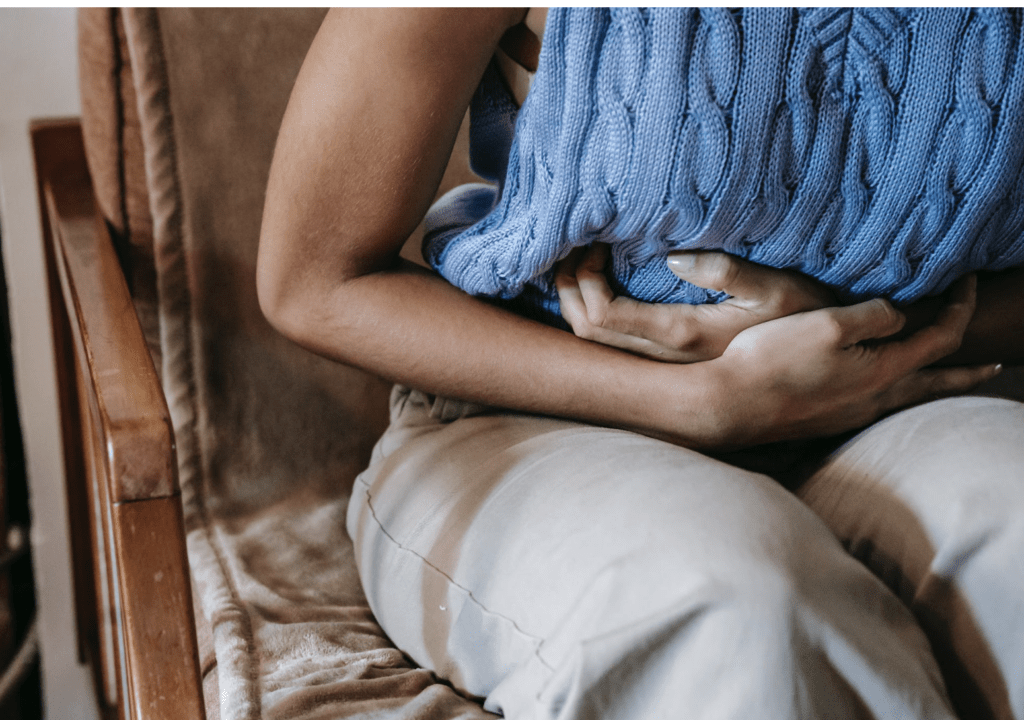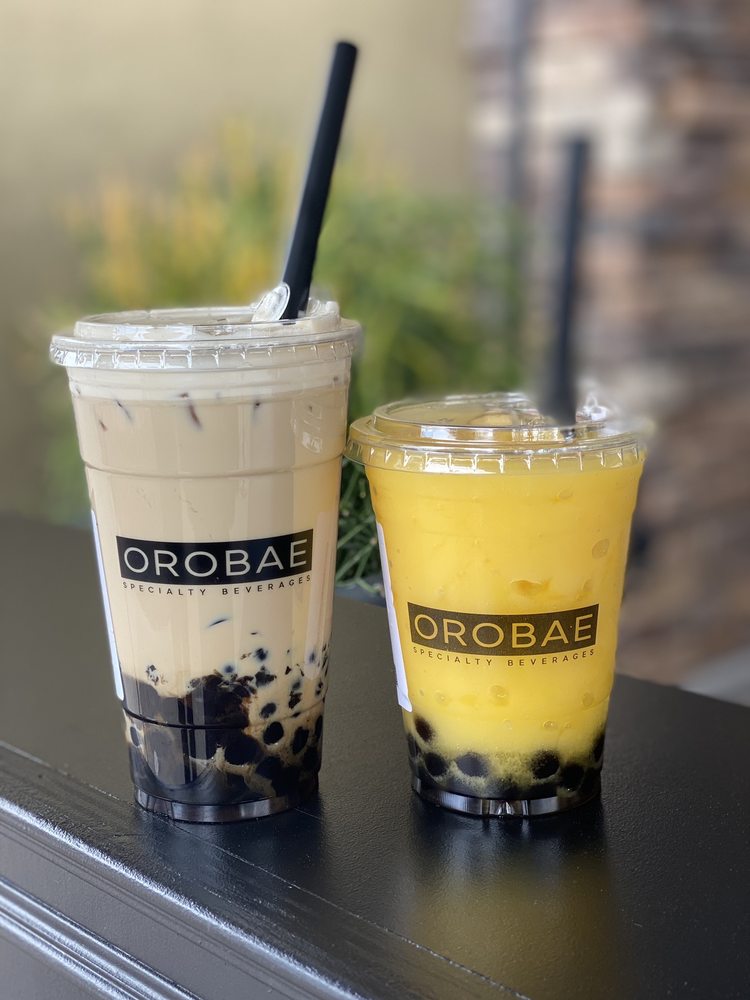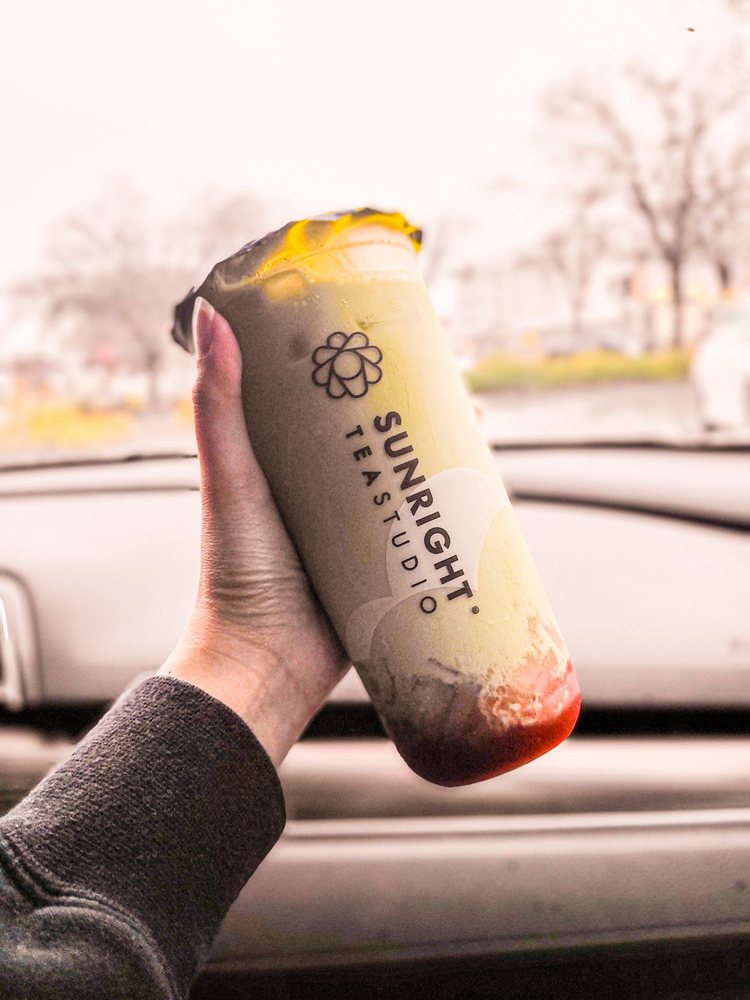Ever wondered, “Why does boba make me feel sick?” It’s a question I’ve asked myself after enjoying a cup of my favorite bubble tea. This popular beverage has taken the world by storm, but for some of us, it can leave an unpleasant aftermath.
The culprit could be several components of your beloved boba tea. Tapioca pearls, the chewy balls at the bottom of your drink, are high in starch and low in nutritional value. Made from tapioca – a starchy substance extracted from cassava root – these pearls can be hard to digest if swallowed without chewing properly. This leads to indigestion and stomach pain.
Moreover, black tea which is commonly used in making boba milk tea contains tannins – naturally occurring compounds found in many plant foods including tea leaves – that may lead to nausea and constipation when consumed in large amounts or on an empty stomach. The caffeine present can also contribute to feelings of discomfort like bloating or diarrhea especially if you’re drinking bubble tea regularly on a daily basis.
Remember: Moderation is key! Drinking bubble tea occasionally shouldn’t cause any issues unless you have specific food allergies or intolerances (like lactose intolerance with milk teas). But gulping down those delightful little tapioca balls without giving them time to dissolve? That’s likely why you don’t feel too hot after indulging!

Understanding Boba: A Quick Overview of Nausea Inducing Ingredients
What is Boba: Understanding Its Ingredients
Boba, also known as bubble tea or pearl milk tea, has become a beloved beverage for many. But what exactly is boba? It’s essentially a drink made from black tea leaves, sweetened with syrup or honey and served with chewy tapioca pearls. These tapioca balls are the star of the show – they’re starchy spheres made from cassava root and have very little nutritional value on their own. The black tea in boba contains naturally occurring compounds like tannin which can cause stomach pain or nausea in some people.
Potential Reasons Why Boba Might Make You Feel Sick
Ever wondered “why does drinking boba make me feel sick?” There could be several reasons behind this. First off, consuming a large amount of starch quickly (like gulping down lots of tapioca pearls) can overwhelm your digestive system causing indigestion and bloating.
Another potential culprit could be tannins found in the black tea used to brew boba. Tannins are natural substances present in many types of plants including tea leaves; when consumed in high amounts, they can induce feelings of nausea especially if you’re drinking tea on an empty stomach.
Additionally, people who have lactose intolerance might experience abdominal pain after drinking milk-based bubble teas while those sensitive to caffeine may suffer from symptoms such as increased urination and diarrhea.
Lastly but importantly, if you’ve ever felt nauseated after consuming bubble teas loaded with sweeteners like sugar syrups it might not just be because it’s too sweet – excessive sugar intake often leads to feelings of discomfort like nausea and gastrointestinal upset.
Ways to Enjoy Boba Without Feeling Unwell
Even if you’ve had a bad run-in with boba before, don’t feel disheartened! There are ways you can still enjoy this delicious drink without feeling sick. Here’s what you need to know:
- Opt for less sugar: Most bubble tea shops offer the option to customize your drink’s sweetness level, so try asking for less syrup or honey.
- Chew thoroughly: Take your time when drinking boba tea and make sure to chew the tapioca pearls completely before swallowing. This aids in digestion and can help prevent indigestion.
- Drink in moderation: Like anything else, bubble teas should be consumed in moderation. Drinking a large amount of any beverage on an empty stomach can cause discomfort.
- Try other bases: If black tea gives you trouble, try opting for green or herbal teas which are lower in tannins.
Remember that everyone is different and it might take some trial and error to find what works best for you. So next time I drink my favorite boba milk tea, I’ll definitely follow these tips!
The Ingredients in Boba Drinks that could make your stomach upset
Let’s dive into the world of boba drinks and discover what they’re really made of. It might just surprise you.
Identifying Common Allergens in Boba Drinks
Boba tea, also known as bubble tea, is a Taiwanese drink that’s gained massive popularity worldwide. But what’s exactly inside this fascinating beverage?
The main components are usually black or green tea leaves brewed to perfection, then sweetened with honey or syrup. Tapioca pearls – chewy balls made from tapioca starch extracted from the cassava root – are added for texture. Some variations even include milk or fruit juices for an extra flavor boost.
But here’s where it gets interesting: some people report feeling sick after drinking boba tea. Stomach pain, bloating, diarrhea…the works! And while we don’t want to rain on your bubble tea parade, it’s important to know these symptoms could be due to common allergens present in the ingredients.
Tapioca pearls contain a large amount of starch – a complex carbohydrate that can cause indigestion if consumed excessively or not properly digested by our system. In rare cases, tapioca can also trigger allergic reactions resulting in abdominal pain and nausea.
Another ingredient worth mentioning is milk – often used in boba milk teas which can cause lactose intolerance issues for some individuals leading them to feel nauseated after consuming.
Additionally, many boba shops use powdered additives for flavoring their drinks which may contain gluten and other allergens potentially causing discomfort especially if you have dietary sensitivities.
How Your Body Reacts to Excessive Sugar from Boba
Sugar is another critical ingredient we need to talk about when discussing why boba might make you feel sick. Sweeteners like syrup and honey are commonly used in copious amounts making this beverage extremely high on sugar content! This large amount of sugar all at once can shock your system leading to a sugar crash that might leave you feeling tired, dizzy, and even nauseated.
Drinking tea on an empty stomach can also be a problem. Tea contains tannin, a naturally occurring compound found in many plants including tea leaves. Consuming high amounts of tannins can lead to stomach ache, constipation and even nausea-inducing feelings – especially when consumed on an empty stomach.
Moreover, the caffeine in the black or green tea base of boba drinks could also contribute to your discomfort. Caffeine is known to dehydrate you and stimulate urination which may leave you feeling weak if not balanced with adequate water intake.
It’s important to remember moderation is key! Enjoying bubble tea in moderation while being mindful of its ingredients can help prevent these uncomfortable side effects from spoiling your boba experience.
In conclusion, knowing what’s inside your boba drink helps you understand why it might make some people feel sick after consuming it excessively or without proper caution regarding potential allergens and excessive sugar content.

Common Food Intolerances and Allergies Related to Drinking Boba Tea
Identifying Food Intolerances Triggered by Boba
Boba, also known as bubble tea, is a popular beverage that’s not just refreshing but also fun to drink. It’s hard not to enjoy the chewy tapioca pearls or ‘boba balls’ that come with it. However, for some people, drinking boba tea can lead to feelings of nausea or even stomach pain. So why does this happen?
One thing you need to know is that these tapioca pearls are made from cassava root starch which may be difficult for some people’s digestive systems to break down completely. This can cause indigestion leading them feeling sick after consuming boba tea. Some folks may have a sensitivity towards black tea leaves used in making the brew – they contain tannin, a naturally occurring compound that might induce feelings of nausea if consumed in large amounts especially on an empty stomach.
Common Allergic Reactions to Boba Ingredients
There are several ingredients in boba milk tea that could potentially trigger allergic reactions. Tapioca pearls themselves could be problematic if you’re allergic to cassava root from which they’re derived. Additionally, certain powders and syrups added as sweeteners might contain allergens such as nuts or soy.
Furthermore, additives like food coloring used in flavored jellies (another common topping) may cause reactions too; though less common than intolerances and gastrointestinal discomforts caused by the main ingredients mentioned earlier.
Lastly, keep an eye out for signs of caffeine intolerance since most teas used as base beverages for boba drinks do contain caffeine – symptoms include jitteriness and rapid heartbeat after consumption.
The Role of Lactose Intolerance in Boba Consumption
It’s no secret: lactose intolerance is widespread globally affecting numerous individuals who don’t feel well after ingesting dairy products like milk, which is a common ingredient in boba milk tea. Lactose intolerant individuals may experience symptoms like bloating, diarrhea, and abdominal pain after consuming dairy products because their bodies lack the necessary enzyme to digest lactose effectively.
If you’re lactose intolerant and find yourself feeling nauseated or experiencing stomach pains after drinking bubble tea, it’s worth considering whether it’s the addition of milk causing this discomfort. Fortunately, there are non-dairy alternatives available for most boba drinks these days. You can opt for soy or almond milk as an alternative so you can still enjoy your favorite beverage without the ache.
Remember though: while enjoying your beloved boba tea in moderation might help prevent some of these issues, if you have severe reactions or allergies please seek advice from a healthcare professional before making dietary changes.
What You Need To Know About Sugar Content in Bubble Tea That Can Cause Discomfort
The Hidden Sugar Content in Your Favorite Boba Drink
Let’s start with a bitter truth about our beloved boba tea. You need to know that your favorite beverage isn’t as innocent as it appears. A single serving of bubble tea can contain a staggering amount of sugar, comparable to what you’d find in a large Mcdonalds milkshake or even more! And we’re not just talking about the natural sugars from the black tea leaves.
The tapioca pearls at the bottom of your cup are made from tapioca starch, derived from cassava root. These starchy balls don’t just add chew and texture; they also contribute additional sweetness since they’re often soaked in syrup or honey before being added to your drink.
Connecting High Sugar Intake with Physical Discomfort
Now, why should this matter? Well, consuming high amounts of sugar is never good news for your body – whether it’s hidden in a boba drink or blatantly present in candy bars. Each time I drink one of these sugary concoctions, my body has to work overtime trying to process all that extra sweetness. This can lead to physical discomfort like stomach pain and nausea.
A report by CNN stated that drinking tea on an empty stomach could cause you feel nauseated due to its naturally occurring compounds such as tannins which increase stomach acid production leading potentially gastrointestinal problems like indigestion and heartburn.
Sugar overload doesn’t just make you feel sick immediately after consumption – it can also have longer-term effects such as bloating or constipation caused by changes in gut bacteria brought on by excessive sugar intake.

How Boba’s Sugar Content Can Impact Your Digestive Health
Beyond feeling unwell right after drinking bubble tea, there are long-term health impacts too. Regularly consuming large amounts of sugars puts strain on various parts of the digestive system over time.
For instance, tapioca pearls are notoriously hard to digest. The high starch content in these little balls can be problematic for the digestive system, causing discomfort and even indigestion. Plus, as they’re made from a root vegetable with almost no nutritional value other than carbohydrates, you’re not getting any beneficial nutrients either.
Moreover, overconsumption of boba tea may lead to weight gain due to the high caloric content of both the sweetened tea and tapioca pearls. This can further strain your body and lead to additional health issues down the line.
So next time you reach for that bubble tea straw remember moderation is key! It’s okay to enjoy this tasty treat now and then but maybe opt for less sugar or smaller portion sizes when possible. And if you still feel sick after drinking boba tea? Maybe it’s time we tried some ginger or spice infused teas instead!
Effects of Caffeine Present in Boba Tea
I can’t ignore the fact that there’s a good amount of caffeine present in boba tea. You see, this favorite beverage is typically made from black tea leaves which naturally contain caffeine. So if you’ve ever wondered, “why does drinking boba tea make me feel sick?”, it could be due to the effects of this compound on your system.
Caffeine stimulates the central nervous system and when consumed in large amounts, it might lead to stomach pain or even diarrhea. There’s also something else you need to know about this popular brew – black tea is high in tannins. This naturally occurring compound gives tea its distinct flavor but can also cause nausea-inducing effects especially when consumed on an empty stomach.
To give you a better idea, here are some key points:
- Drinking bubble tea on an empty stomach may exacerbate feelings of nausea.
- The tapioca pearls or “boba” found in bubble tea are starchy and require more time for our digestive system to break down.
- Consuming large quantities of these chewy balls could potentially lead to indigestion or constipation.
In addition to all that, let’s not forget about those who suffer from lactose intolerance who might find themselves feeling bloated after drinking boba milk teas with added dairy products.
Now don’t get me wrong – I’m not saying that every time you drink bubble tea, you’ll feel nauseated or experience abdominal pain! What I am suggesting is consuming this sweetened beverage moderately as part of a balanced diet while being mindful of any potential gastrointestinal discomforts.
So whether it’s the caffeine content making your heart race too fast or those undigested tapioca pearls causing discomfort – moderation is key when enjoying your favorite boba treat!
Digestive System Response to Tapioca Pearls Causing Stomach Pain or Diarrhea
Here’s something you need to know. When I sip on my boba tea, there’s a chance I might feel sick afterwards. So, what’s the connection between drinking bubble tea and feeling nauseated? Well, it has a lot to do with how our digestive system reacts to tapioca pearls.
Tapioca pearls are starchy balls made from the cassava root. They’re chewy and fun to eat or drink with your tea, but they can also be hard for your body to digest. The starch in these pearls doesn’t dissolve easily which means it takes more time and effort for our bodies to break them down. This could lead to indigestion or even constipation if consumed in large amounts.
Furthermore, black tea is often used as the base for boba milk tea. Now black tea contains a compound known as tannin – you’ll find this naturally occurring compound in many other teas too! High in tannins, black tea can sometimes cause stomach pain or diarrhea especially when drunk on an empty stomach.
But wait – there’s more! Boba milk teas are often loaded with sweeteners like honey or syrup that add extra calories without any real nutritional value – not great news if you’re watching your waistline! These sugars don’t just contribute towards that deliciously sweet taste we all love; they may also cause bloating and abdominal pain due its impact on our gastrointestinal tract.
Drinking boba tea might seem like all fun until you get hit by nausea-inducing effects of caffeine overload – yes, most teas contain caffeine too! It’s worth noting that while moderate consumption of caffeine is fine (and even beneficial), going overboard could potentially lead us feeling jittery or dehydrated due increased urination.
And let’s not forget those who suffer from lactose intolerance; adding milk into the beverage could trigger symptoms like bloating, diarrhea, and an ache in the stomach.
So next time I drink my favorite boba tea, whether it’s at a local café or McDonald’s, I’ll opt for moderation. And maybe instead of those tapioca pearls (or alongside them), I might also try adding some ginger – a spice reportedly good for aiding digestion!
Personal Stories: People Sharing Their Experiences with Boba-Induced Sickness
Let me dive right into the heart of our topic. I’ve found that many people report feeling sick after drinking boba tea, and there’s a myriad of reasons why this might happen. In fact, some individuals have even shared their personal experiences online to shed light on the issue.
One person stated that they always experience nausea after consuming boba tea. They traced it back to the tapioca pearls – these starchy balls made from cassava root can be hard for some digestive systems to handle. The individual said they don’t feel well every time they drink bubble tea with tapioca pearls, describing symptoms such as stomach pain and bloating.
Another story was about someone who felt sick whenever they drank black tea on an empty stomach. This person learned that tannin, a compound found naturally in tea leaves, could cause feelings of nausea when consumed without food in your system. It was interesting to note how quickly this individual’s body reacted negatively when drinking tea on an empty stomach; it wasn’t long before abdominal pain set in.
Yet another tale came from a self-proclaimed “boba addict” who had been downing large amounts of bubble milk tea daily until severe constipation hit them hard! Turns out the tapioca pearls were too much for their gastrointestinal system due to high starch content and low nutritional value.
And let’s not forget about those lactose intolerant folks out there! A story shared by one such individual revealed how lactose intolerance can trigger indigestion or diarrhea if you’re not careful with what type of milk is used in your boba beverage. It seems opting for lactose-free options or skipping dairy altogether would be wise moves here!
These personal anecdotes highlight just how varied reactions can be when it comes to boba-induced sickness – whether it’s due to ingredients like tapioca pearls or factors like drinking tea on an empty stomach. It’s clear we need to know more about what we consume and how it can affect us. Remember, moderation is key when enjoying your favorite treats!
Conclusion: Balancing Enjoyment of Boba with Health Concerns
In the end, it’s clear that there’s a connection between drinking boba tea and feeling sick. However, it doesn’t mean we need to entirely abandon this delightful beverage. Instead, understanding why nausea or stomach pain might occur can help us find ways to still enjoy our favorite drink while avoiding discomfort.
The key culprit behind the sickness is likely the high tannin content found in black tea leaves used to brew boba tea. Tannins are naturally occurring compounds which can cause nausea and diarrhea if consumed in large amounts, especially on an empty stomach. The next time I drink boba milk tea, I’ll be sure not to do so on an empty stomach.
Another potential source of discomfort could come from the tapioca pearls themselves. Made from starch extracted from cassava root, these balls can be hard for some people’s digestive systems to break down and digest properly – especially if they’re swallowed whole rather than chewed thoroughly first.
Also worth considering is lactose intolerance for those who opt for milk-based bubble teas. Lactose intolerance could lead to bloating, abdominal pain or even diarrhea after consuming dairy products like milk or cream added into your bubble tea.
One more factor contributing towards feeling unwell after drinking bubble tea could be dehydration caused by its caffeine content as well as sugar-laden syrups often added as sweeteners – both known diuretics promoting urination leading potentially towards dehydration if consumed excessively without sufficient water intake.
Here are few things you might want to try:
- Drink your bubble tea in moderation.
- Avoid drinking boba on an empty stomach.
- Chew tapioca pearls thoroughly before swallowing.
- Opt for less sugar or choose natural sweeteners like honey instead of syrup.
- If lactose intolerant consider plant-based milks.
While there’s no need necessarily abandon our beloved boba completely due to these concerns, it’s important we understand potential health implications and make informed decisions. Whether it’s the tannic black tea, starchy tapioca pearls or added sweeteners causing discomfort, remember that moderation is key when enjoying any beverage.
Always listen to your body. If you consistently feel nauseated after drinking boba tea – it might be best to consult with a healthcare provider. After all, our health is something we should never compromise on – not even for the most delicious cup of boba!

